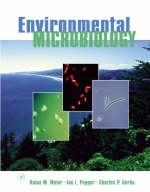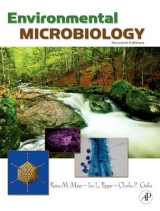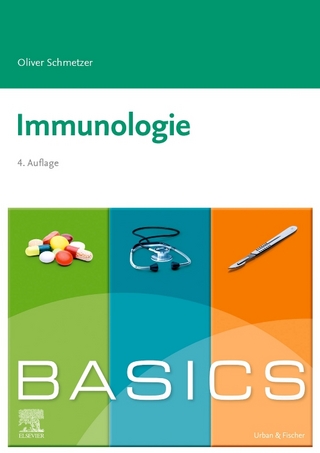
Environmental Microbiology
Academic Press Inc (Verlag)
978-0-12-497570-5 (ISBN)
- Titel erscheint in neuer Auflage
- Artikel merken
The field of environmental microbiology encompasses aspects of several areas of study including microbial ecology, molecular genetics, and environmental science. Environmental Microbiology is the first book to offer a comprehensive discussion of this field as a discipline, which the authors define as the study of microbial fate and activity in air, water, and soil, and the resulting impact on human health and welfare. While the roots of environmental microbiology can be traced to sanitary engineering (water and wastewater treatment), the field has grown to include other practical issues such as bioremediation, the control of known and emerging waterborne pathogens, microbial risk assessment, and environmental biotechnology. Five general areas are emphasized in this text: (i) Foundation chapters, (ii) microbial environments, (iii) detection of microbial activity, (iv) the impact of microbial activity on the environment in terms of nutrient cycling and pollutant fate, and (v) detection and control of pathogens in the environment. Designed for courses at senior undergraduate and graduate levels, Environmental Microbiology will also serve as an essential reference for environmental microbiologists, microbial ecologists, and environmental engineers, as well as those interested in epidemiology, water and wastewater treatment, and biotechnology.
Dr. Ian Pepper is a Regents Professor at the University of Arizona and also the Director of the University of Arizona Water and Energy Sustainable Technology Center (WEST). He is an environmental microbiologist whose research has focused on the fate and transport of microbial pathogens in air, water, soils and municipal wastes. His expertise has been recognized by membership on six National Academy of Sciences Committees. Dr. Pepper is a Fellow of the American Association for the Advancement of Science, the American Academy of Microbiology, the Soil Science Society of America, and the American Society of Agronomy. He is the author or co-author of seven textbooks and over 200 peer-reviewed journal articles. Dr. Charles P. Gerba is a Professor at the University of Arizona. He conducts research the transmission of pathogens through the environment. His recent research encompasses the transmission of pathogens by water, food and fomites; fate of pathogens in land applied wastes; development of new disinfectants; domestic microbiology and microbial risk assessment. He has been an author on more than 500 articles including several books in environmental microbiology and pollution science. He is a fellow of the American Academy of Microbiology and the American Association for the Advancement of Science. In 1998 he received the A. P. Black Award from the American Water Works Association for outstanding contributions to water science and in 1996 he received the McKee medal from the Water Environment Federation for outstanding contributions to groundwater protection. He received the 1999 Award of Excellence in Environmental Health from National Association of County and City Health Officials. Dr. Terry Gentry is a Professor at Texas A&M University and is also the Director of the Soil and Aquatic Microbiology Laboratory (SAML). He is an environmental microbiologist specializing in the development and use of molecular technologies to enhance the detection and remediation of environmental contamination. This includes the detection and identification of microbial pathogens from animal, human, and natural sources and also the characterization of microbial populations and communities contributing to applied remediation processes such as the bioremediation of organic and metal contaminants. He teaches undergraduate and graduate courses in soil and water microbiology. He is the author or co-author of two textbooks; 16 book chapters; and over 100 peer-reviewed journal articles.
Introduction to Environmental Microbiology.
Microorganisms in the Environment.
Bacterial Growth.
Terrestrial Environments.
Aeromicrobiology.
Aquatic and Extreme Environments.
Microbial Transport.
Environmental Sample Collection and Processing.
Microscopic Techniques.
Cultural Methods.
Physiological Methods.
Immunological Methods.
Nucleic Acid Based Methods of Analysis.
Biogeochemical Cycling.
Consequences of Biogeochemical Cycles Gone Wild.
Microorganisms and Organic Pollutants.
Microorganisms and Metal Pollutants.
Beneficial and Pathogenic Microbes in Agriculture.
Environmentally Transmitted Pathogens.
Indicator Microorganisms.
Domestic Wastes and Waste Treatment.
Drinking Water Treatment and Distribution.
Disinfection.
Risk Assessment.
| Erscheint lt. Verlag | 2.3.2000 |
|---|---|
| Verlagsort | San Diego |
| Sprache | englisch |
| Maße | 216 x 279 mm |
| Gewicht | 1769 g |
| Themenwelt | Medizin / Pharmazie ► Medizinische Fachgebiete ► Mikrobiologie / Infektologie / Reisemedizin |
| Studium ► Querschnittsbereiche ► Infektiologie / Immunologie | |
| Naturwissenschaften ► Biologie ► Mikrobiologie / Immunologie | |
| Technik ► Umwelttechnik / Biotechnologie | |
| ISBN-10 | 0-12-497570-4 / 0124975704 |
| ISBN-13 | 978-0-12-497570-5 / 9780124975705 |
| Zustand | Neuware |
| Haben Sie eine Frage zum Produkt? |
aus dem Bereich



